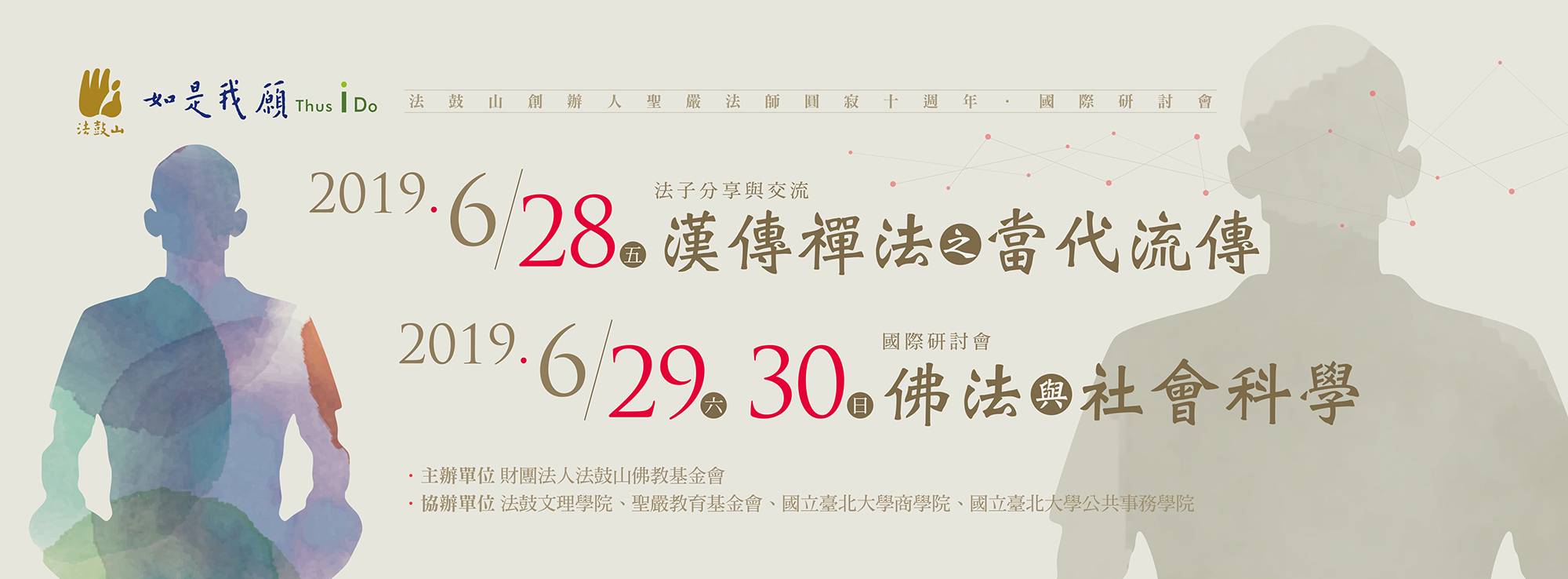Practicing Chan in Daily Life—A Study of Curriculum Development and Inquiry in Education for Environmental Protection Team of DDM Volunteers
Ya-Wen Chang
This paper focuses on developing curriculums to assist beginners in practicing Chan in daily life. Within the context of Dharma Dram Mountain volunteer group (hereinafter referred as “DDMVG”), a 6-course systematic curriculum was designed and conducted to members of Environmental Protection Team (hereinafter “EPT”) of DDMVG on days of providing volunteer services from December 10, 2017 to October 14, 2018 and a summary curriculum was blended in annual year-end banquet on December 23, 2018 (hereinafter “the curriculums”). The curriculums were developed based on Master Shen-yen’s theoretical and methodical teachings of Chan. Feedbacks form EPT participants within classroom and suggestions from meditation instructor also profoundly contribute to dynamic development of the curriculums. As outcome of a participatory learning process, courses of the curriculums are divided into four sectors: theoretical illustration with stories, methodical practice through experiencing activities, group-based discussion and practice at home. Furthermore, the study investigated the following: (a) participants’ practicing experiences of chan in daily life, if any, after participating the curriculums through open-ended questions in inquiry, and (b) participants’ attitudes regards to conducting curriculums on volunteer-service days or blending in annual banquets through questionnaire. In accordance with observations and analysis of data from inquiries, this paper concludes and suggests as follows: (a) the curriculum can facilitate participants’ practice of chan in daily life, strengthen interactions between participants via group-based discussion and experience sharing within classroom. (b) implanting curriculums on volunteer-service days or blending in annual banquets is potentially a useful method for changing 11% of EPT volunteers who reluctant to practice chan and serving as a vehicle for transforming their learning. This paper generates actionable knowledge within DDMVG context and shares suggestions from interior perspective through EPT. Findings of this paper could be assistance to those whom might be interested in future curriculum developments or teaching innovations in education for DDM volunteers.
